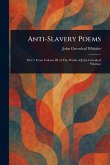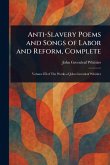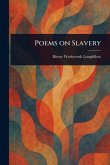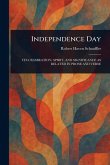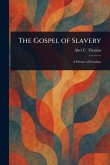"Anti Slavery Poems I" by John Greenleaf Whittier, Vol. 3, Part 1, is a powerful collection of abolitionist verse from a pivotal period in United States history. This volume presents Whittier's impactful poems directly addressing the moral and societal issues of slavery. A significant contribution to the antislavery movement, this compilation captures the voices and sentiments of the time. Through vivid language and heartfelt emotion, Whittier's poetry exposes the injustices of slavery and advocates for its abolition. This collection offers a valuable glimpse into 19th-century American social consciousness and the literary landscape that fueled the fight for freedom. A carefully prepared print republication, this historical text provides a timeless testament to the struggle for equality and the enduring power of poetry. It serves as an important resource for those interested in American history, social justice, and the legacy of slavery in the United States. This work has been selected by scholars as being culturally important, and is part of the knowledge base of civilization as we know it. This work is in the public domain in the United States of America, and possibly other nations. Within the United States, you may freely copy and distribute this work, as no entity (individual or corporate) has a copyright on the body of the work. Scholars believe, and we concur, that this work is important enough to be preserved, reproduced, and made generally available to the public. We appreciate your support of the preservation process, and thank you for being an important part of keeping this knowledge alive and relevant.
Bitte wählen Sie Ihr Anliegen aus.
Rechnungen
Retourenschein anfordern
Bestellstatus
Storno



